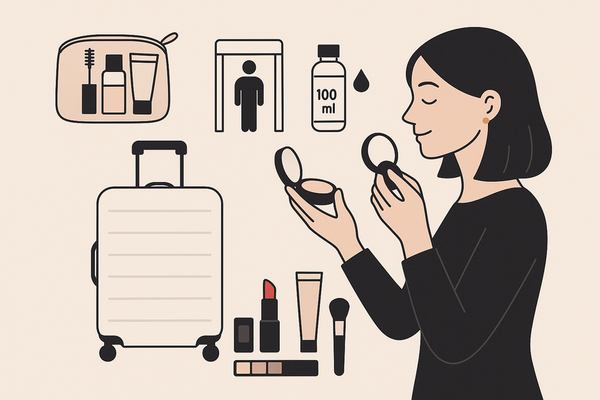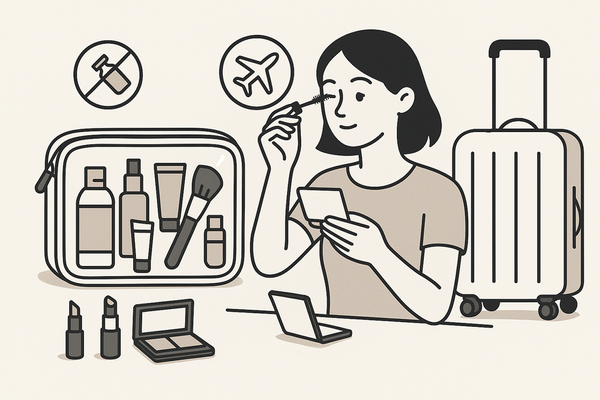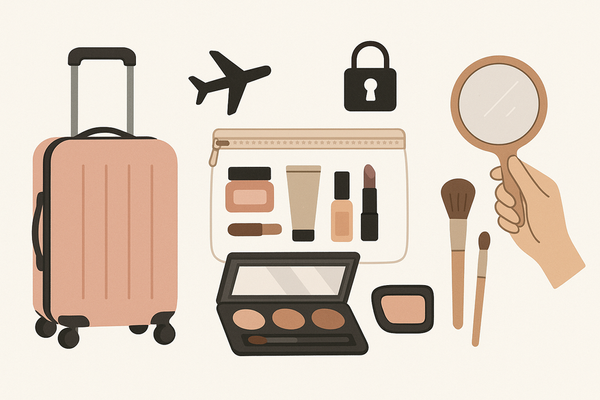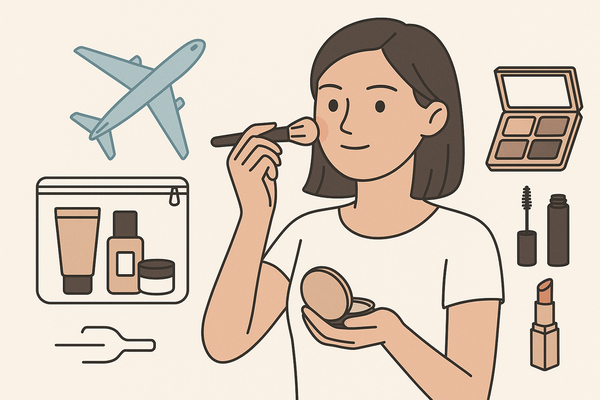Mastering Creative Makeup Designs: Techniques, Trends & Expert Tips
Discover creative makeup designs with expert techniques, trends, detailed tutorials, and pro tips for artists at all levels.
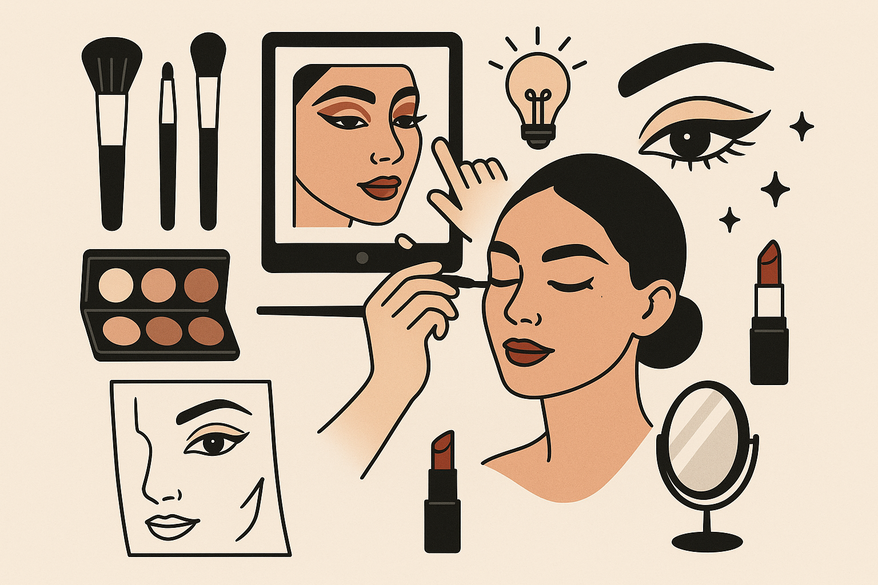
8 min read
Key Takeaways
- Artistry & Narrative: Creative makeup designs blend bold colors, unconventional shapes, and storytelling to transform your face into a living canvas.
- Essential Tools: High-pigment paints, fine brushes, blending sponges, airbrush systems, and 3D embellishments are must-haves for standout results.
- Step-by-Step Tutorials: Learn pop art eye graphics and fantasy nature-inspired face art with clear, structured guides.
- Cutting-Edge Trends: Hyper-realistic SFX, metallic/chrome finishes, glow-in-the-dark effects, and social-media challenges keep looks fresh.
- Skill-Level Tips: Actionable advice supports both beginners refining basics and advanced artists pushing into SFX and AI-assisted mock-ups.
Table of Contents
- Understanding Creative Makeup Designs
- Essential Tools & Techniques
- Step-by-Step Tutorials
- Inspiration & Trends
- Tips for Beginners & Advanced Artists
Section 1: Understanding Creative Makeup Designs
Creative makeup designs combine artistry and imagination, turning skin into a narrative canvas that stands out through:
- Originality: Bold colors, geometric shapes, abstract swirls, and textured brushwork.
- Concept-Driven Themes: Fantasy creatures (elves, mermaids), pop art motifs, and optical illusions like 3D eyes.
- Mixed Media: Metallic foils, chrome pigments, glitter gels, rhinestones, and prosthetic appliqués.
- Emerging Trends: Shift from theatrical makeup to AI-enhanced concept art, viral embellishments, and sci-fi glow effects.
Section 2: Essential Tools & Techniques
Building standout looks requires both the right products and professional methods:
Must-Have Products & Tools
- Highly pigmented eyeshadows and face paints
- Fine-tipped brushes, spatulas, and blending sponges
- Airbrush systems for flawless coverage
- 3D embellishments: rhinestones, crystals, glitter gels, prosthetics
Professional Techniques
- Color Theory Mastery: Use color wheels to craft complementary or analog schemes and balance bold hues with neutrals.
- Dimensional Layering: Combine mattes, shimmers, metallics, and glosses, sealing with setting spray for depth.
- Advanced Application: Employ stencils, airbrushing, and mixing mediums to achieve precise shapes and perfect finishes.
Innovative Methods
- Texture Mixing: Pair matte and gloss or metallic and velvet for tactile intrigue.
- AI-Powered Mock-Ups: Trial designs digitally before painting.
- Freehand Artistry: Embrace asymmetry, negative space, and abstract strokes.
Digital tools like Makeup Check AI provide real-time mock-ups, shade matching, and product recommendations for seamless creativity.
Section 3: Step-by-Step Tutorials
Master two standout looks with core principles of creative makeup design:
Tutorial 1: Pop Art Eye Design
- Color Selection: Choose primary hues (red, blue, yellow) for maximum contrast.
- Base Prep: Apply primer and matte foundation for a flawless canvas.
- Outline Shapes: Use white or black liner to map graphic blocks.
- Fill & Blend: Pack color with a flat brush; softly diffuse edges for depth.
- Detailing: Add white dots and black contour lines to evoke comic shading.
Tutorial 2: Fantasy Nature-Inspired Face Art
- Motif Sketching: Draw leaves, vines, or flowers with fine brushes in greens, browns, and purples.
- Layer Textures: Highlight edges with metallic pigments and dust with glitter for a dewy effect.
- Feature Alignment: Follow cheekbones and brow arches to flatter facial structure.
Versatile Techniques:
• Circular buffing for seamless gradients
• Stippling for raised, textured effects
• Strategic rhinestone placement along bone structure, secured with lash glue
Section 4: Inspiration & Trends
Stay inspired by tapping into today’s driving forces:
Current Trends
- Hyper-realistic SFX blended with airbrush for skin-like finishes
- Metallic & chrome textures for cyberpunk flair
- Glow-in-the-dark & UV-reactive paints for nightlife drama
- Social-media challenges and filter-inspired themes
Influential Sources
- Artists like Tal Peleg, painting miniature landscapes on eyelids
- Daily inspiration hubs: Instagram & TikTok
- AI Makeup Apps for virtual try-ons
Personalizing Inspiration
- Draw from fine art movements, architecture, or runway shows
- Create mood boards blending colors, shapes, and textures
- Incorporate cultural motifs and personal narratives for unique signature looks
Section 5: Tips for Beginners & Advanced Artists
Elevate your craft with targeted advice:
For Beginners
- Start small with color blocks and simple shapes
- Build a basic kit: primer, liners, small shadow palette, quality brushes
- Practice on face charts or sketchpads to hone skills
- Join online communities for feedback and motivation
For Advanced Artists
- Explore SFX with custom prosthetics and silicone appliances
- Invest in airbrush equipment and master thin, layered coats
- Collaborate with photographers and stylists to diversify portfolios
- Use social analytics to track trending styles and adapt quickly
Recommended Resources
- YouTube tutorials by Nyane Lebajoa, James Charles, and other pros
- MasterClass courses on professional makeup artistry
- AI makeup generators for virtual color trials
- Forums like Reddit’s r/MakeupAddiction and specialized Facebook groups
FAQ
- What is creative makeup design?
It’s the art of using bold colors, shapes, and mixed media to create narrative-driven looks that go beyond traditional beauty. - Which tools are essential?
Highly pigmented paints, fine brushes, blending sponges, airbrush systems, and embellishments like rhinestones or prosthetics. - How can beginners practice safely?
Use face charts or sketchpads, start with simple color blocking, and join online challenges for constructive feedback. - What trends should I follow?
Hyper-realistic SFX, metallic/chrome finishes, glow-in-the-dark effects, and social-media-inspired challenges. - Are AI tools worth using?
Yes—AI mock-up apps like Makeup Check AI speed up design trials, shade matching, and product selection.

